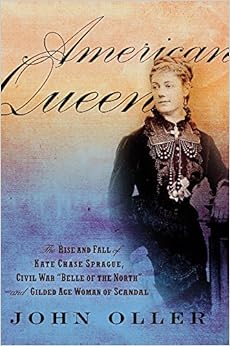She performed all the duties of a First Lady of her time that are now taken on by a dedicated, permanent member of the White House staff.
Harriet Lane's life would have been quite different if her uncle Buck hadn't had such a long, successful political career in D.C.. He filled a seat in the House of Representatives, was elected a Senator, named minister to St. Petersburg (by Old Hickory in his second term), appointed Secretary of State (under Polk). and minister to England (by Pierce), before finally achieving his decades' long goal of becoming President of the United States.
Harriet Lane was educated at the Merritt Boarding School in Charleston in western Virginia (no West Virginia yet). When Buchanan became Secretary of State he transferred her to the Academy of the Visitation Convent School, Washington, D.C. (1847-1849). He wrote:
"I think of all the places for you, the nunnery at Georgetown would be the best."The convent school was part of what now is Georgetown University. Lane was there only a few years after the Jesuits sold their Maryland plantation slaves down south in 1838, to plug the holes in the college's finances, since their tobacco plantations were no longer producing revenue.
A friend of Harriet's, who has yet hasn't been named, whom she meets at the convent school, a girl who also comes to be friends with Thaddeus Stevens's niece or nieces, will bring this up at some point in a conversation. These girls will remain friends as long as both of them are alive. In their class, friendships formed at school were as important in women's later lives as were the friendships formed by boys and young men at their schools.
 |
| Harriet Lane Johnston, Grand Dame. This summer in Lancaster, PA, I took a photo of this portrait that still hangs in the Buchanan mansion, Wheatlands, along with many others. |
Harriet destroyed all of Buchanan's correspondence with "Miss Fancy" (Andrew Jackson dubbed Buchanan and his dear friend, William Rufus DuVane King, Miss Nancy and Miss Fancy), just as King's family did with his correspondence. Thus there are is no smoking gun primary documentation that they had a full-blown homosexual sexual relationship with each other -- or anyone else, for that matter. However, the two men were very close, lived together in D.C. during the months government was in session, went everywhere together, were inseparable.
In a family like Buchanan's and that of his fellow Lancasterian, Thaddeus Stevens, in which female relatives played all the public and social roles that wives would have played, and their housekeepers and their families were treated (unusually for the era!) as part of the family -- even unto receiving substantial legacies, dining with the family, etc. -- Buchanan's family would have taken his deep attachment to King in stride. Perhaps they loved King themselves. And certainly Harriet Lane herself was a sophisticated woman of the world -- she was even a friend of Queen Victoria's. She would have understood how the world might have interpreted her beloved uncle's relationship, and chose to protect his reputation in that area -- he is still vilified in both northern and southern quarters for his actions as POTUS. The north's point of view is that he aided and abetted the slaveocracy and secession, while the south's is that he didn't help them enough. I feel Harriet would have keenly felt her uncle's grief from King's death, and entered into it with all sympathy.
The families of abolitionist Stevens and pro-southern Buchanan lost so many close members, often within short periods, yet another mirror reflection found so often in the matters of the War of the Rebellion, not excluding the White House in D.C. and the White House in Richmond. Harriet lost her husband and her children and then her uncle, in close succession. Yet, most of her life was still ahead of her, and she lived it fully and filled it with accomplishments that signify into the present.
 |

No comments:
Post a Comment